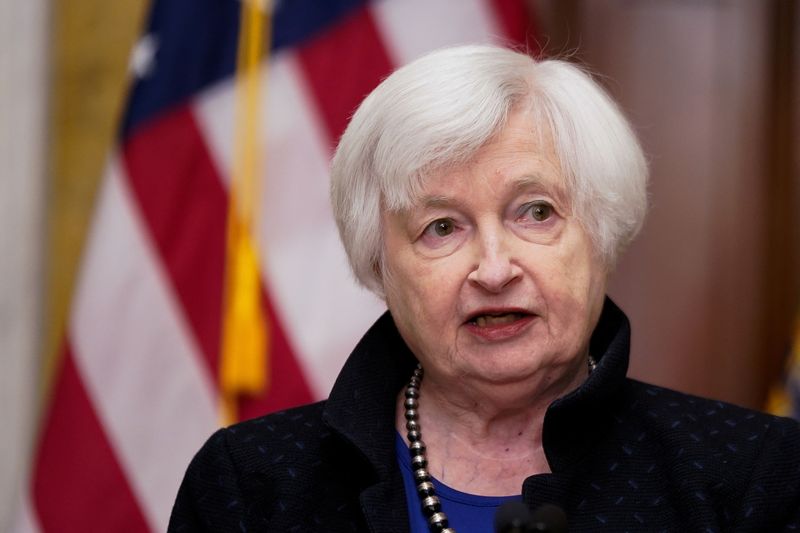By Andrea Shalal and David Lawder
WASHINGTON (Reuters) -China is expected to drop its demand for multilateral development banks to share losses alongside other creditors in sovereign debt restructurings for poor nations, removing a major roadblock to debt relief, a source familiar with the plans said.
The development is expected at a high-level sovereign debt roundtable on Wednesday on the sidelines of the World Bank and International Monetary Fund Spring meetings in Washington.
Beijing would no longer insist multilateral lenders take "haircuts" on loans to poor countries, the source said on Tuesday, while the IMF and World Bank agreed to ensure their debt sustainability analyses of countries undergoing debt restructurings would be made available to Chinese authorities earlier in the process.
IMF Managing Director Kristalina Georgieva at an event during the meetings confirmed that the Fund had agreed to provide earlier debt sustainability information to creditors so they could better prepare for restructurings. She also said the World Bank was being asked to show how it could be a net positive provider of financing and concessional loans.
The IMF, World Bank and the U.S. Treasury have argued to Beijing that such concessional loans to debt-distressed countries were the equivalent of taking principal losses on loans.
"I'm so far optimistic. I hope to remain optimistic after tomorrow when we are meeting," Georgieva told the Bretton Woods Committee event. She added that an April 3 deputies meeting for the sovereign debt roundtable went well.
Georgieva's comments echoed optimism earlier from U.S. Treasury Secretary Janet Yellen that China would agree on certain technical aspects of debt restructuring for poor countries.
"I've been encouraged by China's willingness to provide specific assurances with respect to Sri Lanka. I regard that as a positive sign," Yellen told a news briefing at the start of the spring meetings.
Charles Robertson, global chief economist with Renaissance Capital, said the agreement would be significant for emerging nations struggling with debt.
"If China's now prepared to accept the exemption for multilateral development banks, debt restructuring can happen quicker, or get back to the speed it used to be," Robertson told Reuters. He added that earlier access to the debt sustainability information was significant for China.
"It should give them more influence and power - more chance to determine the eventual look of the debt restructuring."
China would participate in the meeting on Wednesday on the sidelines of the Washington gathering, Yellen said, adding that she would continue to press Beijing to help improve the Group of 20 Common Framework set up to provide debt relief for low-income countries.
"I'm hopeful that we will actually get a bit of progress coming out of this first meeting of the sovereign debt roundtable on a set of technical issues that I think pertain to some important elements of debt restructuring," Yellen said. "I feel encouraged that we have made a bit of progress and I hope to make more."
DEBT DISCUSSIONS
The IMF, World Bank and India, current president of the G20, are co-chairing the Global Sovereign Debt Roundtable with a goal of accelerating debt relief for countries in need. The co-chairs are expected to issue a statement after Wednesday's meeting.

A first limited gathering was held on the sidelines of the G20 finance leaders meeting in India in February, amid ongoing delays in finalizing debt treatment agreements for Zambia, Ghana and Ethiopia.
U.S. officials and others blame the delays largely on foot-dragging by China, now the world's largest bilateral creditor, and reluctance by private-sector creditors.